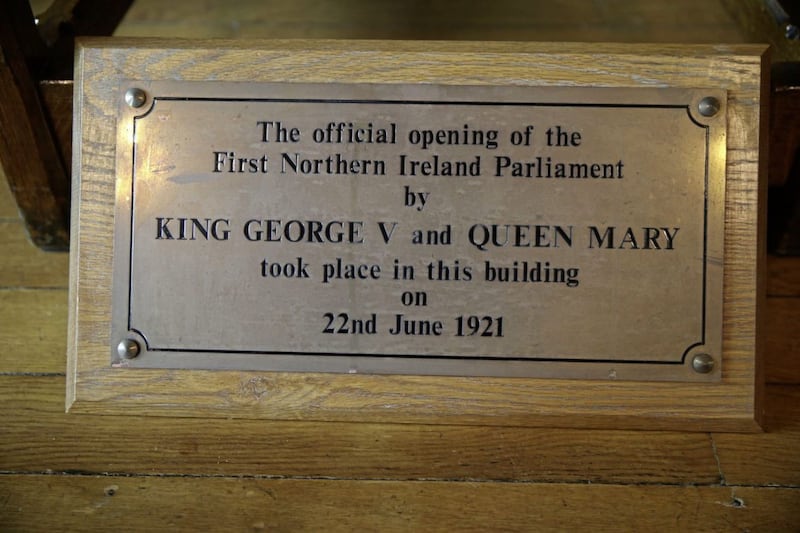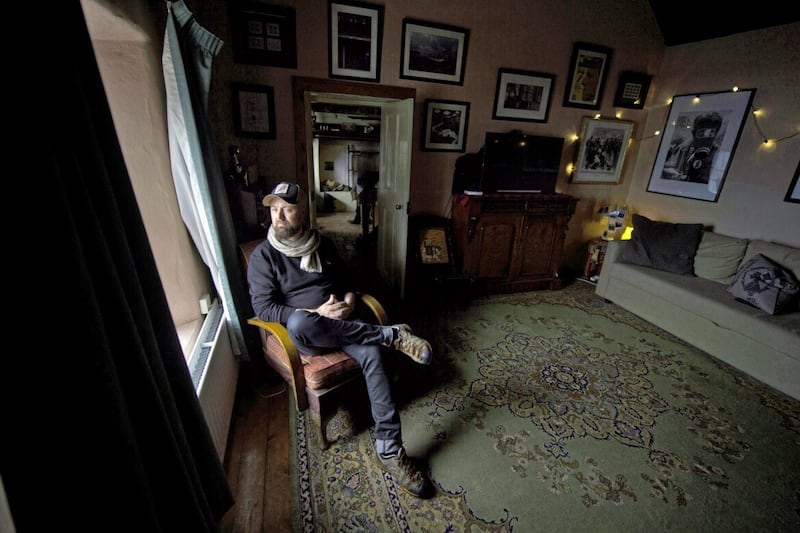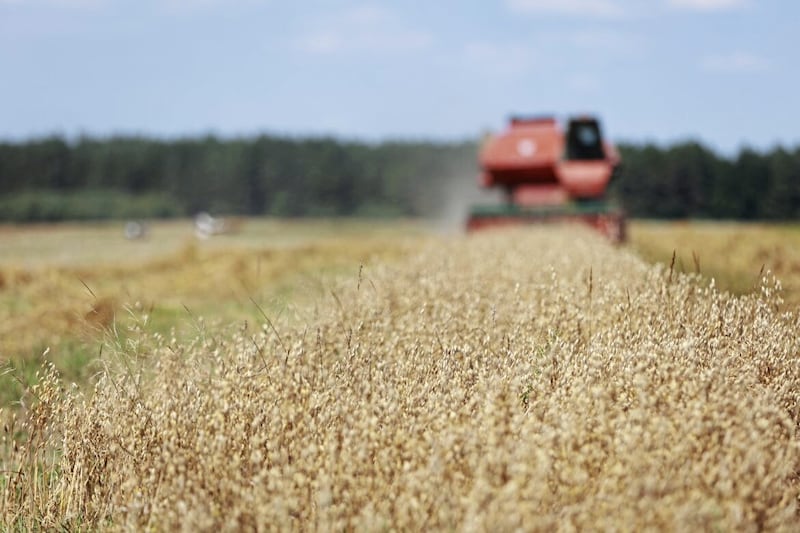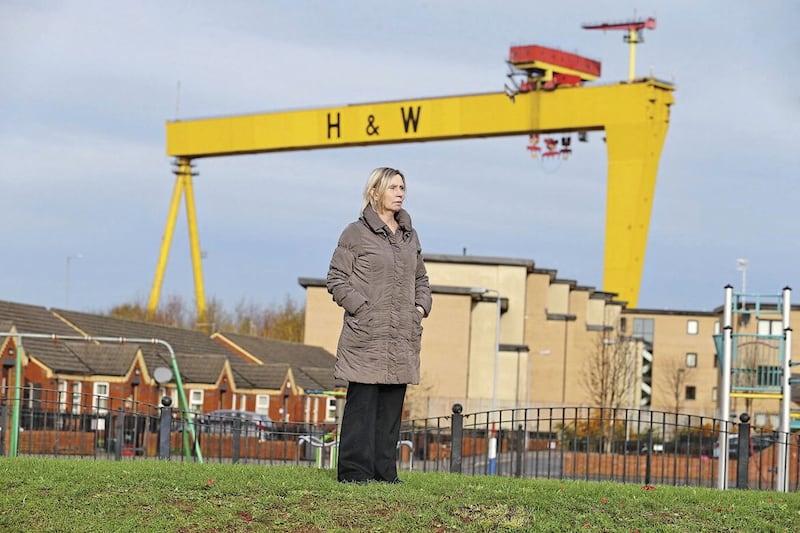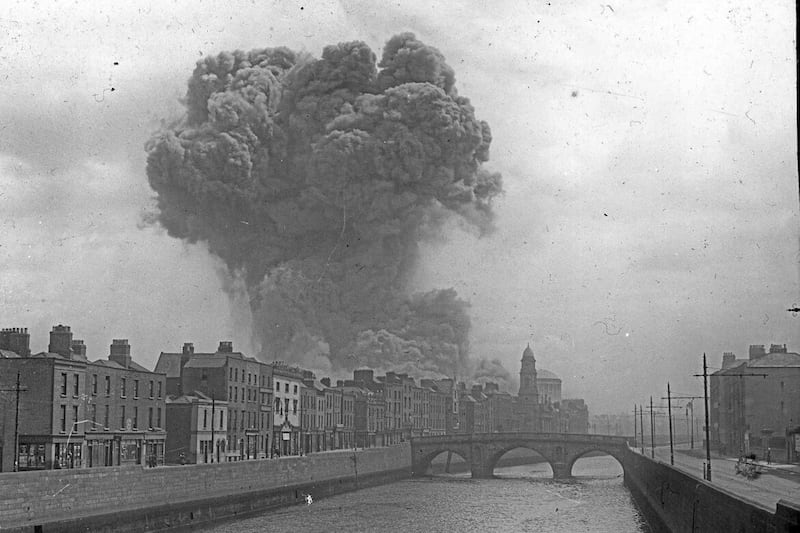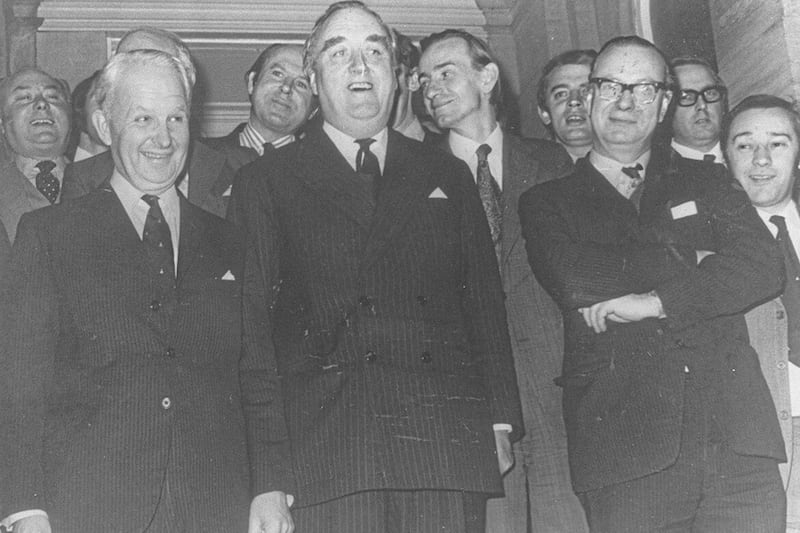WEDNESDAY June 22 1921 was a day of pomp and ceremony, ushering in a new era in Ireland's history when King George V officially opened the Northern Ireland parliament in City Hall in Belfast.
Ever since the formal announcement of the royal visit weeks earlier, an elaborate display was arranged along the proposed route of the royal procession, from the docks, past the Albert Memorial Clock and up High Street to Castle Street and Donegall Place, before making its entrance to the City Hall via Donegall Square North.
The city was draped with flags and bunting, pavements and lampposts were painted red, white and blue. Along the route, many banners reading 'We will not have Home Rule'' were visible.
The irony seemed lost on the banner holders that this was a home rule jurisdiction, up and running before one in the south was.
Stands holding 3,000 people were erected and portraits of King George, Queen Mary, Edward Carson and James Craig were prominently placed along the route. Street vendors busily sold miniature flags, rosettes and a special programme of the occasion.
Some not in the city centre availed of higher vantage points at places like Cave Hill and Bellevue to watch the royal yacht as it sailed up Belfast Lough.
Many journalists and photographers from home and abroad mingled with the crowd in what appeared to be a carnival atmosphere.
The enthusiastic reception shown to the king and queen prompted the Northern Ireland prime minister James Craig's wife, Cecil, to write: "Imagine Radicals in England thinking they would ever succeed in driving people like that out of the British Empire."
The royal party was met at the docks by Craig at 11.30am, arriving in City Hall half an hour later. Escorted to specially designed gilded thrones, where after prayers, King George V made his speech officially opening the parliament.
Whilst most of Craig's carefully laid plans came to fruition that day, the king's speech did not. Craig had drafted a speech but it had "greatly distressed" the king who felt he was "being made a mouthpiece of Ulster in the speech rather than that of the Empire".
The king felt it was not up to Ulster to dictate the king's utterances. The king's speech was subsequently changed, partly written by the British prime minister David Lloyd George's adviser Edward Grigg and partly on the advice of Jan Smuts, the South African prime minister.
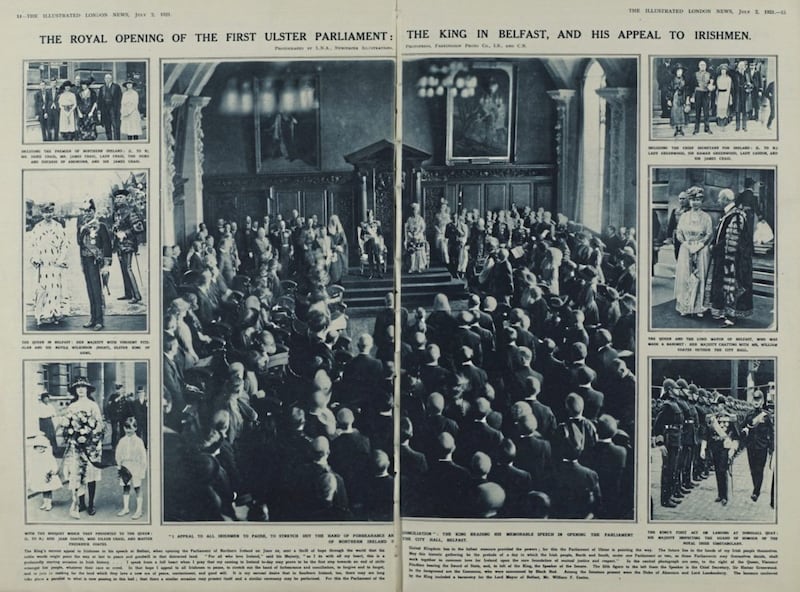
Smuts convinced King George V to use his speech as an olive branch to Sinn Féin, the "establishment of the Northern Parliament definitely eliminates the coercion of Ulster" and cleared the road "to deal on the most statesmanlike lines with the rest of Ireland".
In his pacifying speech, the king declared he was "confident that the important matters entrusted to the control and guidance of the Northern Parliament will be managed with wisdom and moderation; with fairness and due regard to every faith and interest".
He appealed "to all Irishmen to pause, to stretch out the hand of forbearance and conciliation, to forgive and to forget, and to join in making for the land which they love a new era of peace, contentment, and goodwill".
Queen Mary was so moved by the enthusiasm from the crowd that she was "seen to be smiling through happy tears". The visit was a short one, lasting for about four hours.
As the king was boarding the yacht to leave, he told Craig: "I can't tell you how glad I am I am here, but you know my entourage were very much against it." He had received dire warnings from his security advisers not to go to Belfast.
Amidst the pageantry on the streets, there was a huge security presence, with over a thousand soldiers and police spread over the mile-long route. Armed policemen also commandeered houses along the way.
Whilst unionists rejoiced at the royal seal of approval of the new parliament, the nationalist outlook of the occasion was markedly different.
The event was boycotted by almost the entire Catholic community. The Catholic Primate of Ireland, Cardinal Michael Logue, was invited to the state opening but refused to attend on "the grounds that he had a prior engagement".
Instead he, along with the rest of the hierarchy, issued a statement condemning the new parliament, saying: "In defiance of Ireland a special Government has been given to one section of her people... after a year of continuous and intolerable persecution directed against the Catholics of Belfast and the surrounding areas."
The Bishop of Down and Connor, Dr Joseph MacRory, claimed the king had made a mistake "to go out of his way to signify special approval of an institution which was set up in defiance of the determined opposition of more than four-fifths of the Irish Nation".
While conceding the king's speech had been "an undoubted success", the Irish News echoed the views of the Catholic hierarchy in stating that the northern parliament had been established during "a year of continuing intolerance and persecution".
King George V's speech helped to pave the way for the truce between Sinn Féin and British forces on July 11. Its impact should not be overstated, though, as it was but one of many steps that resulted in a cessation to hostilities, and whilst the truce by and large held in the south, it did not do so in the north.
The period between June 22 and July 11 was also marked by intense violence, resulting in 160 more deaths. One incident was directly related to the official opening.
Realising the enormous security presence in Belfast thwarted any attack on the royal party, the IRA decided to attack a troop train instead, carrying around 120 soldiers and over 100 horses, returning from the official opening of the Belfast Parliament two days later, on the morning of June 24.
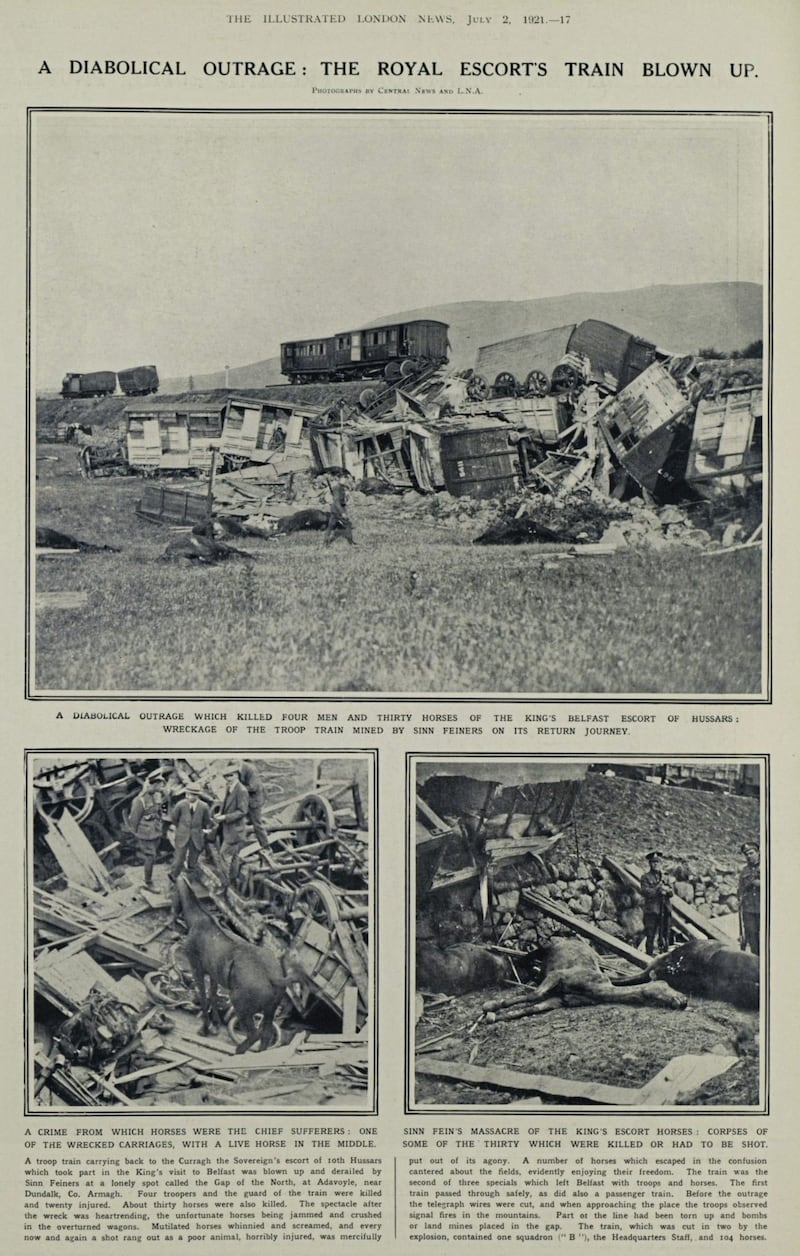
An IRA bomb squad, under Frank Aiken's command, derailed the train at Adavoyle on the Louth/Armagh border by detonating bombs between railway sleepers. Several train carriages were flung down the steep embankment, resulting in four soldiers and 80 horses being killed. A train guard and a farmer were also shot dead in the crossfire that followed the explosion.
Notwithstanding the fanfare surrounding the occasion and the conciliatory speech delivered by the king, violence and the threat of violence permeated the new jurisdiction of Northern Ireland.
For two-thirds of the people in the north, the king's visit was a moment of celebration and affirmation. For the other third, it confirmed loss and heralded an uncertain future.
Cormac Moore is author of Birth of the Border: The Impact of Partition in Ireland (Merrion Press, 2019)
